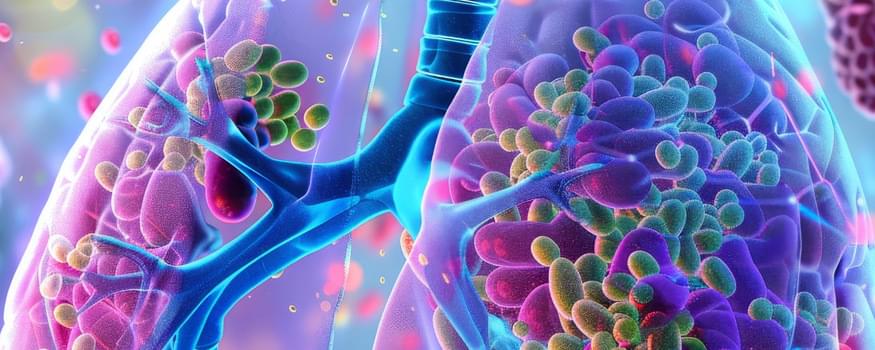The study of the gut microbiome, which is the total of all the microbes living in the intestines, has been shown to not only play an important role in the health of the bowel itself, but also in the health of distant organs such as the lungs. Lung cancer is one of the diseases that is often difficult to treat successfully. Rohan Kubba from the California Northstate University, Elk Grove, USA, believes that by studying the gut microbiome he can understand more about how anti-cancer treatments affect the gut–lung axis, and how the variations found in patient microbe populations are associated with treatment outcomes.
The microbiome consists of thousands of species including bacteria, fungi, and viruses (microbiota). Each person has an entirely unique network of microbiota, most of them living in their gut but also on the skin, mouth, and lungs. Each person’s microbiome is formed by a combination of factors, including but not limited to exposure to microorganisms during natural birth, consuming their mother’s milk, and later on in life, environmental factors such as diet.
Gut microbiome and disease.
